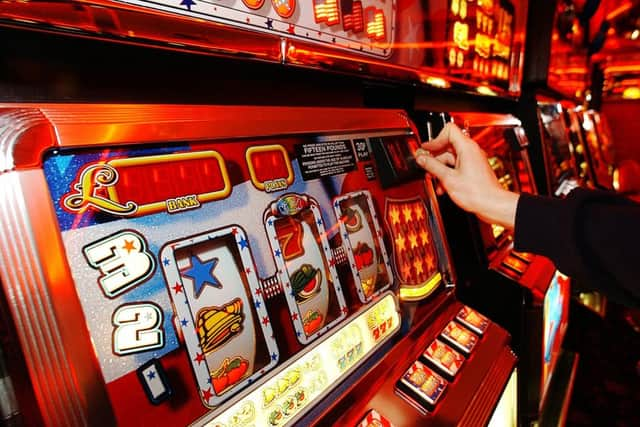Donald Morrison: Game on to ensure UK's betting responsibly


Opponents of betting shops saw it as their chance to turn their fire on the industry and the popular fixed odds betting shops (FOBTs) that have helped bookmakers remain viable in the digital era.
But this review doesn’t just address the future of FOBTs in betting shops. It involves gaming machines in all premises licensed under the 2005 Gambling Act.
Advertisement
Hide AdAdvertisement
Hide AdThere are now more than 167,000 gaming machines in venues across the UK. FOBTs are the best known – thanks, in part, to a well-funded lobbying campaign by groups with a vested interest in undermining bookies – but account for just over 20 per cent of all gaming machines.


The vast majority of machines are found in adult gaming centres, clubs and pubs. Typically they allow punters to stake up to £2 at a time, whereas FOBTs allow customers to stake up to £100.
Opponents of FOBTs, like the All Party Parliamentary Group (APPG) on FOBTs, argue that reducing stakes to £2 would significantly reduce problem gambling. In January, the group published a report demanding such a change.
This report by a small number of anti-betting shop MPs has been dismissed by independent commentators as a “sham”, not least because the APPG and its report is funded by those with interests in the casino, arcade and pub industries. However, leaving aside concerns about its impartiality, the report is fundamentally flawed in other respects.
First, there is no correlation between gaming machines in bookmakers and problem gambling, a fact borne out by successive gambling prevalence studies and new research from the Gambling Commission.


In fact, levels of problem gambling in the UK have remained broadly static – at around or below 1 per cent – since FOBTs were introduced to betting shops more than 15 years ago.
In Scotland, the scale of problem gambling is even lower at 0.7 per cent.
Second, there is no evidence that FOBTs cause increased harm to problem gamblers compared to other machines. In fact, evidence suggests that the low-stake machines commonly found in adult gaming centres are more problematic because of the nature of the machines themselves, and the environment in which they’re played.
Advertisement
Hide AdAdvertisement
Hide AdThese machines are eight times faster than FOBTs, with an average spin cycle every 2.5 seconds, and offer a significantly lower return to player than FOBTs.
This combination of high-speed play and low return means that player losses can quickly stack up, a fact confirmed by new research from the Gambling Commission which shows that gamblers risk losing more money and are playing for longer on gaming machines in arcades than on FOBTs.
Another report by academics warns that reducing stakes on FOBTs could lead to riskier and more volatile behaviour and greater losses by players.
“Generally, our findings do not support the proposition that nudging players towards lower stakes mitigated harm or made play more responsible,” it concludes. Low stakes does not mean low risk.
Independent research also shows that problem gambling is complex, with players typically participating in seven or more gambling activities, and that focussing on stake size or a single product, such as FOBTs, is the wrong approach.
It’s a message I hope policymakers heed because a purge on FOBTs would have serious unintended consequences.
Reducing stake sizes to £2, making FOBTs and betting shops less competitive, could force thousands of shops to close, leading to the loss of tens of thousands of jobs and millions of pounds of tax and business rates.
It would have a devastating impact on a retail sector that has invested in our communities for more than 55 years.
Advertisement
Hide AdAdvertisement
Hide AdBut it would also undermine efforts to promote responsible gambling, with the small number of problem gamblers being displaced from the safe, controlled environment of the betting shop into less-regulated venues or even illegal gambling dens, out of reach of our professional, trained staff.
Responsible gambling standards vary across the industry.
However, the retail betting industry can rightly claim to be at the forefront of efforts to reduce problem gambling.
Unlike other gambling venues, our members don’t offer customers alcohol, allow ATMs in their shops or advertise gaming machines in venue windows. And, uniquely, gaming machines in betting shops allow players to set limits so that customers can make informed decisions on the amount they spend or the time they play for.
As a result of these and other measures, betting shops offer the most robust system of protection for customers.
So, politicians should be careful what they wish for.
Rather than pursue the agenda of vested interests, policymakers now need to ask urgent questions of those in the gambling sector who have most to gain from the demise of responsible bookmakers.
Donald Morrison is director of ABB Scotland, the trade association for high street bookmakers in Scotland, www.abb.uk.com